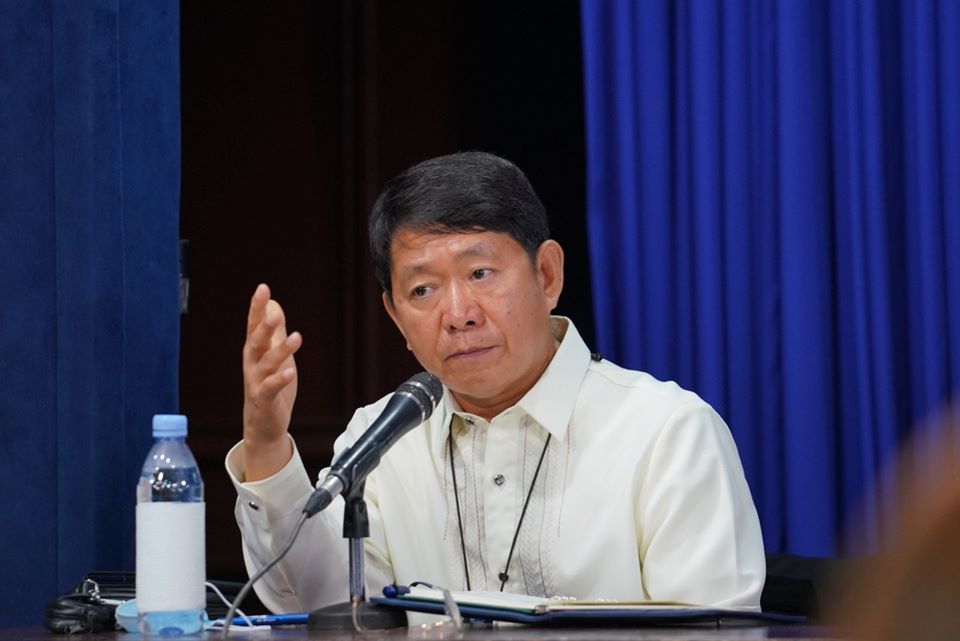NSC hails G7 support for Philippines over China's aggression in disputed waters

The National Security Council (NSC) was elated with the recent expression of support for the Philippines of seven of the world’s most powerful economies, known as G7, amid China’s aggression in the South China Sea.
National Security Adviser (NSA) Eduardo Año welcomed the views of the leaders of Canada, France, Germany, Italy, Japan, United Kingdom and United States as they expressed their "serious concerns" and "strong opposition" to any unilateral attempt to change the status quo in the East and South China Seas by force or coercion.
“The resolute stance of the G7 nations against the dangerous use of coast guard and maritime militia in the South China Sea, particularly the obstruction of high seas freedom of navigation, is a significant affirmation of the principles of international law and the rules-based international order,” Año said in a statement on Saturday night, June 15.
The G7 leaders, as well as participants from the European Union (EU), attended a summit in Apulia, Italy from June 13 to 15 where they collectively released a statement expressing “serious" concern about the situation in the East and South China Seas.
“We continue opposing China’s dangerous use of coast guard and maritime militia in the South China Sea and its repeated obstruction of countries’ high seas freedom of navigation. We express serious concern about the increasing use of dangerous maneuvers and water cannons against Philippine vessels,” the group said.
Año said he appreciates the G7’s “explicit condemnation” of the increasing use of dangerous maneuvers and water cannons by Chinese vessels against Philippine vessels.
Such instances often happen during resupply missions by the Armed Forces of the Philippines (AFP) and Philippine Coast Guard (PCG), as well as routine maritime patrols in the West Philippine Sea (WPS).
“This acknowledgement underscores the international community’s recognition of the threats faced by our nation and reaffirms the importance of upholding the rule of law in maritime disputes,” Año said.
The top security adviser also reiterated that there is no legal basis for China’s “expansive” maritime claims in the South China sea.
China claims almost the entire South China Sea, including some features within the Philippines’ exclusive economic zone (EEZ) which have been turned into an artificial island armed with military capabilities.
Further, the G7 also reiterated the significance of the 2016 arbitral ruling by the Permanent Court of Arbitration, which ruled in favor of the Philippines claims in the West Philippine Sea and invalidated China’s dash-line claims.
“We stand with the G7 in opposing China’s militarization, coercive actions, and intimidation activities in the region,” Año said.
He added that the principles enshrined in the United Nations Convention on the Law of the Sea (UNCLOS) “must be respected” and its role as the legal framework governing all activities in the oceans and seas “must be upheld universally.”
“The G7’s reiteration of the significance of the 2016 Arbitral Award is a vital reminder that this ruling is legally binding. It serves as a crucial basis for the peaceful resolution of disputes,” Año said in response.
The NSA assured the country’s commitment to work with the international community to “ensure peace, stability and security in the region.”
“We look forward to continued collaboration with the G7 and the international community in general in upholding maritime law and ensuring that the South China Sea remains a zone of peace, freedom and cooperation,” he said.
Relatedly, the Department of Foreign Affairs announced that the national government has formally asked the United Nations (UN) Commission on the Limits of the Continental Shelf to register the country’s extended continental shelf (ECS) in the West Philippine Sea, particularly in western Palawan, to help secure the country’s sovereign rights and maritime jurisdiction in the contested area.